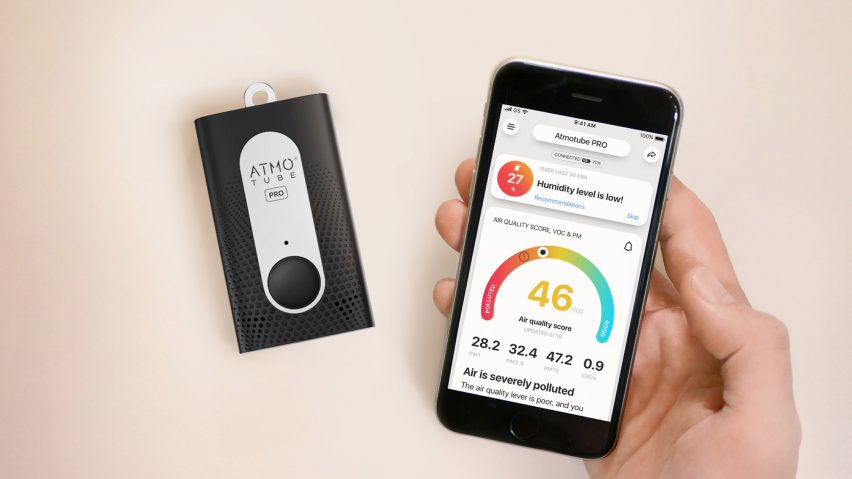
NotAnotherOne creates wearable air quality tracker called Atmotube
Design studio NotAnotherOne has designed a portable air quality monitor that clips onto your bag to test local pollution levels.
Atmotube is a discreet black device made from plastic with aluminium details, that weighs less than 100 grams and can be easily attached to a bag or item of clothing so that it travels with the wearer.
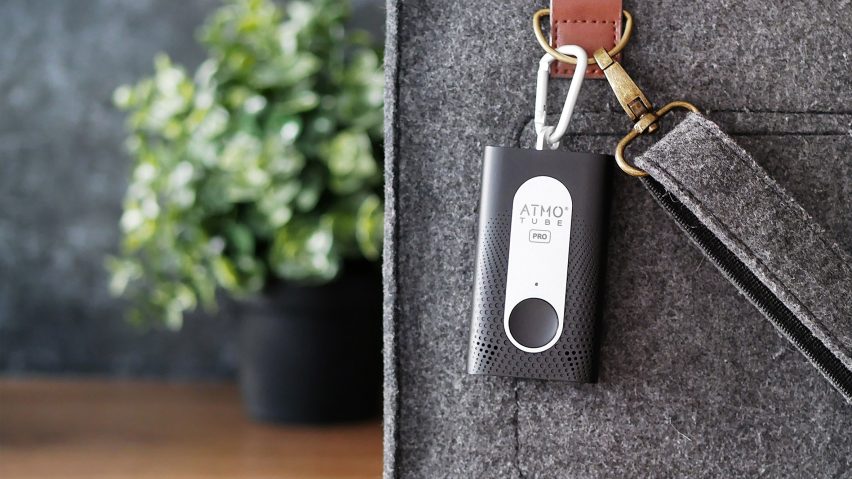
Designed by San Francisco industrial design studio NotAnotherOne, it aims to make tracking the quality of the air you breathe easier.
While the user goes about their day, the device measures the quality of the air that they breathe in real time, and sends the data to the user's mobile phone via bluetooth.
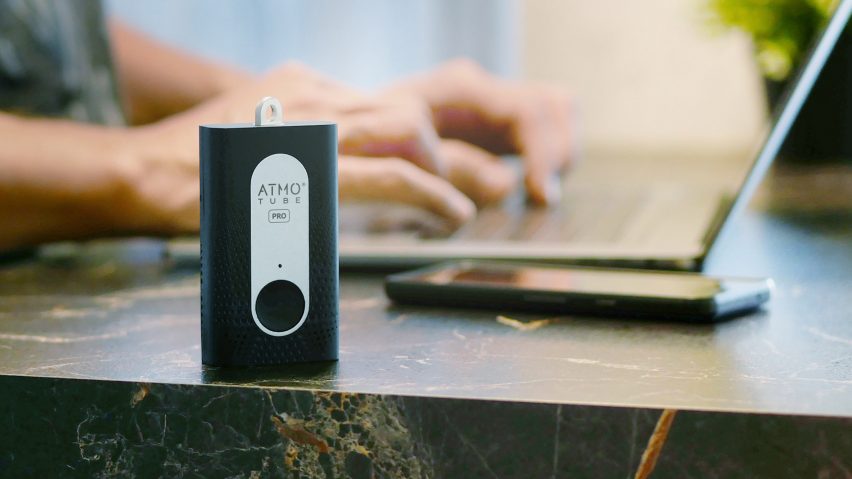
If the air quality falls below a certain level, the device will send an alert to let the user know that they are being exposed to toxic air, so that they can change their route, or wear a mask to protect themselves.
Three in-built sensors measure particulate matter (PM) pollution consisting of particles in the air that measure up to one, 2.5 and 10 micrometres – a unit of measurement that is one millionth of a metre.
Micro-particles less than 10 micrometres long that are suspended in the air can easily enter the lungs and cause potential health problems. These might include dust, pollen, soot, smoke, aerosol vapours and mould spores.
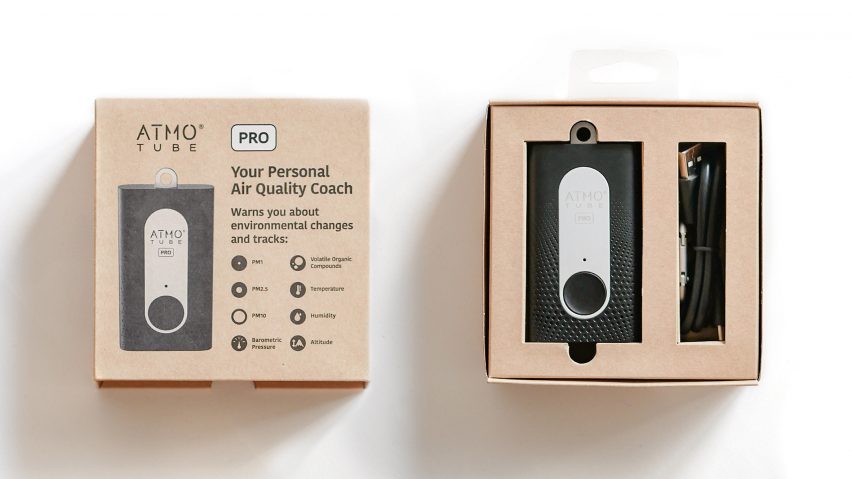
Atmotube also contains a sensor that detects the concentration of volatile organic compounds (VOCs) in the air, such as benzene or formaldehyde that are released by burning fuels including coal or natural gas, as well as from cigarette smoke.
In particular, VOCs are one of the major causes of smog, which affects a number of global cities. As well as causing irritation to the eyes and throat, they can also cause headaches, loss of coordination and nausea.
According to the makers of Atmotube, VOCs are also suspected to be amongst the causes of cancer.
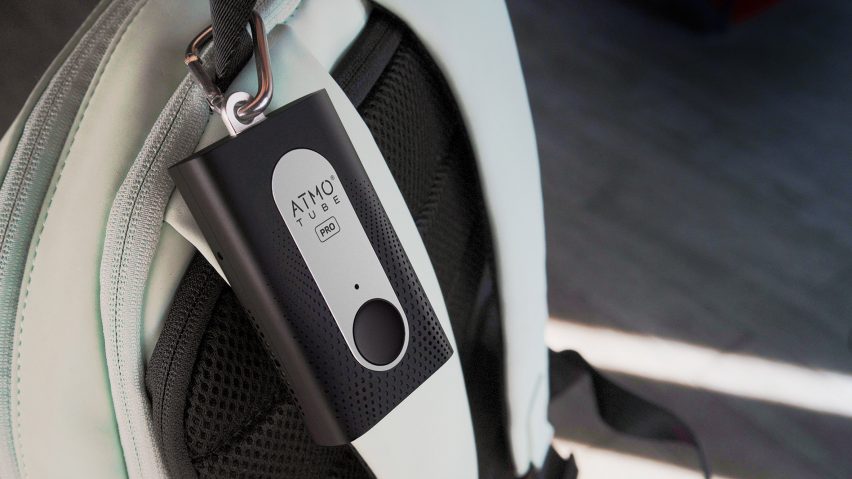
As well as picking up areas of high VOC pollution, the device can also measure potentially less damaging, but equally important air quality indicators, such as atmospheric pressure, temperature and air humidity.
The data collected from all of the device users is pooled to provide an aggregated environmental map of the air quality around the world that is free to access via an app.
The app also provides graphs of the user's personal air quality measurements.

Earlier this year, IKEA released the Gundrig curtain made from material that is coated with a mineral-based substance that can break down common pollutants found both inside and outside the home.
Developed over several years, the curtain uses technology that functions in a similar way to photosynthesis, that works with both natural and artificial light.